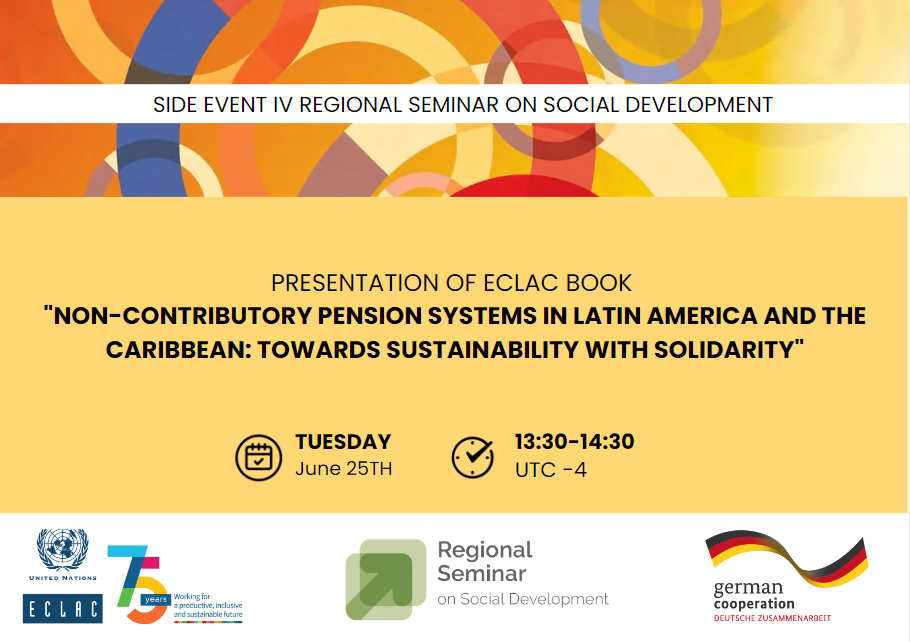Presentation of the book "Non-contributory pension systems in Latin America and the Caribbean: Towards solidarity with sustainability"
Work area(s)
Teaser
Attend the launch of ECLAC's new publication on non-contributory pension systems in the region.
Event information

The book "Non-contributory pension systems in Latin America and the Caribbean: Towards solidarity with sustainability", prepared within the framework of the ECLAC-BMZ/GIZ Project "Transformative Reactivation: Overcoming the Consequences of the COVID-19 Pandemic in Latin America and the Caribbean", will be launched during the IV Regional Seminar on Social Development.
This event will present an overview of the regional situation of these systems, as well as their challenges in the various dimensions of their sustainability within the framework of the debates on the strengthening of pension systems in the region. A high-level panel will be held on the role of non-contributory pension systems in the objectives of eradicating poverty in old age and reducing inequalities in the region.
Practical information
Celso Furtado Room, ECLAC
Hybrid meeting
Related content

ECLAC: Recognizing and Measuring the Multiple Dimensions of Social Inequality is Crucial for Achieving Sustainable Development
Today marked the end of the Fourth Regional Seminar on Social Development organized by ECLAC, in which authorities and specialists analyzed the links between social protection and inequality.
Schedule
Agenda
Moderator: Claudia Robles, ECLAC
Presentation "Non-contributory pension systems in Latin America and the Caribbean: Towards solidarity with sustainability", Alberto Arenas de Mesa, Director of Social Development Division, ECLAC(10 minutes)
Comments (40 minutes):
-
José Manuel Salazar-Xirinachs, Executive Secretary, ECLAC
-
Jeannette Jara, Minister of Labour and Social Security, Chile
-
Jose Carlos Cardona, Secretary of State in the Office of Social Development, Honduras
-
Nicholas Barr, Professor of Public Economics, London School of Economics and Political Science
Questions and comments (10 minutes)
